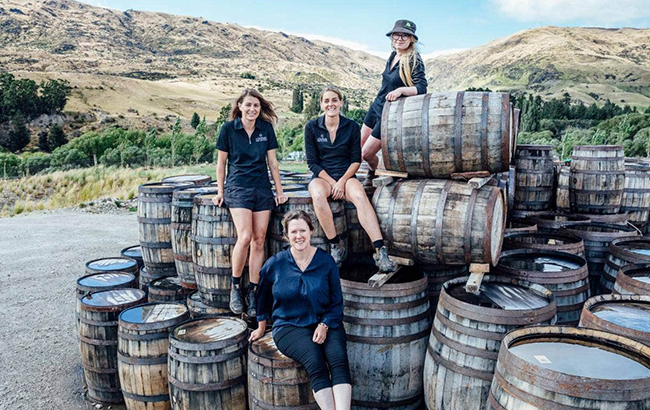New Zealand body issues rules for whisky
By Nicola CarruthersA trade group has introduced new guidelines for the production of whisky in New Zealand to provide clarity for consumers and producers.

The Distilled Spirits Aotearoa (DSA), which represents New Zealand’s community of whisky makers, revealed new guidelines and definitions for the category.
The trade body said the rules were introduced ‘with the intention they be moved into public record and progressed within New Zealand legislation to become formally recognised regulations’.
The DSA said the rules ‘protect and define a premium category for New Zealand whisky’.
The trade body defined New Zealand single malt whisky as made exclusively from 100% malted cereal grain, water and yeast. It must also be batch distilled in copper pot stills, and mashed, fermented, distilled, matured and bottled in New Zealand. It must also be distilled in one distillery, and only natural colouring can be used for consistency.
No additional enzymes can be added or used, and the liquid must be distilled a maximum of 94.8% ABV.
It must also be matured in wooden casks, maximum size of 700 litres, for a minimum of two years, and bottled at 40% ABV.
Furthermore, the packaging must state the age of the youngest whisky matured in cask.
To be labelled ‘New Zealand whisky’, including vatted/blended malt, blended whisky, and grain whisky, the vatted malt must only contain single malts from the country.
Meanwhile, a blended whisky must only contain malt whisky and grain whisky from New Zealand. All fermented sugar must come from the cereal grain, with enzymes allowed.
Whisky imported to and bottled in New Zealand cannot be labelled ‘New Zealand whisky’, the DSA said.
The list of prohibitions includes commercially produced liquid malt extract for single malt whisky, ‘additional’ ingredients such as Sherry, wine, beer, honey, liquid smoke concentrate, sweeteners or spices, and wood chip. The DSA said smoke can be used in the production of whisky, along with flavour from casks such as Sherry, wine and beer.
In addition, the DSA prohibits the use of place names, geographical indicators, language or imagery on any product that does not follow the group’s guidelines for ‘New Zealand whisky’.
The DSA also said the spelling of ‘whiskey’ can be used interchangeably with ‘whisky’.
